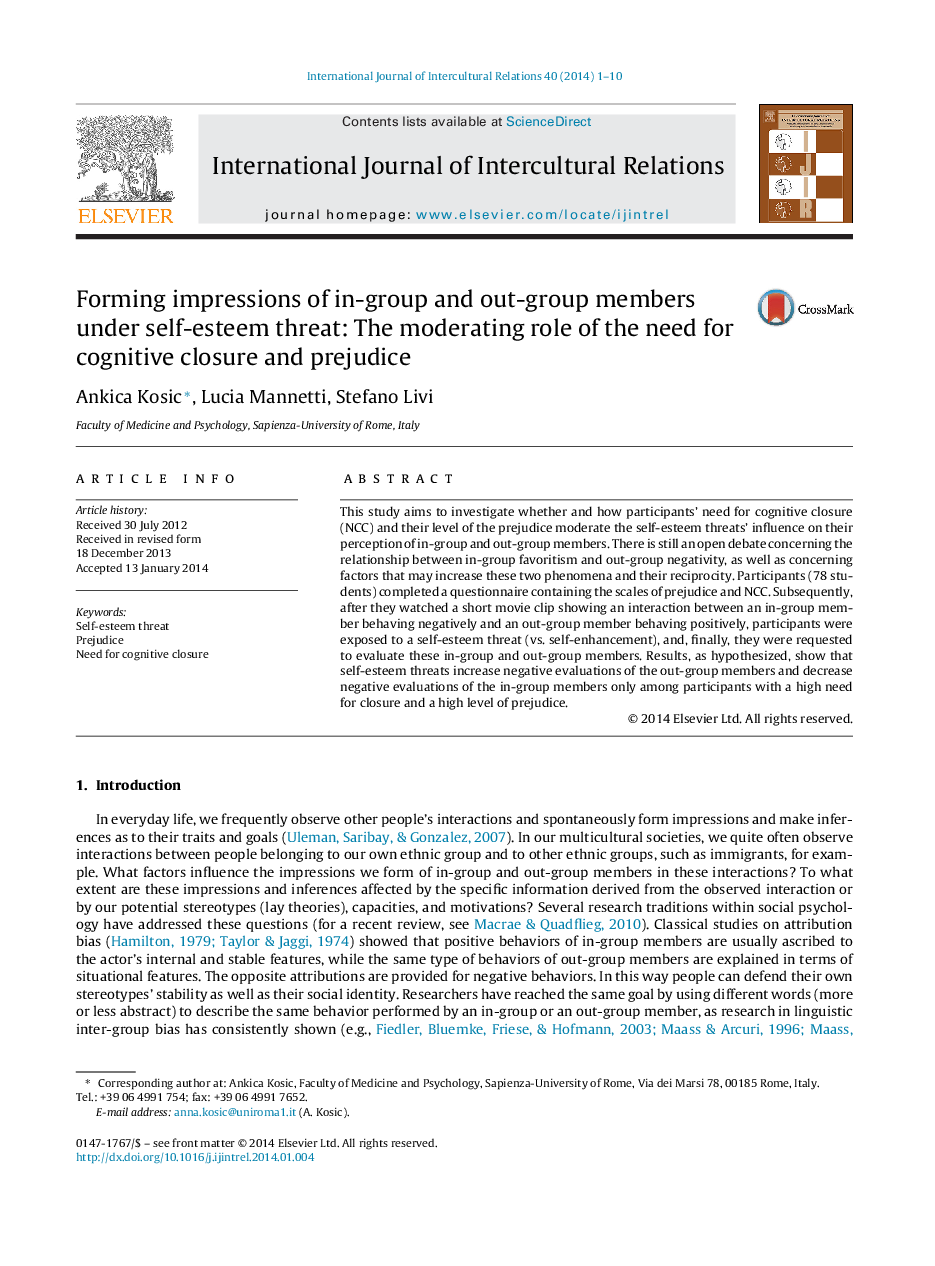| Article ID | Journal | Published Year | Pages | File Type |
|---|---|---|---|---|
| 947072 | International Journal of Intercultural Relations | 2014 | 10 Pages |
This study aims to investigate whether and how participants’ need for cognitive closure (NCC) and their level of the prejudice moderate the self-esteem threats’ influence on their perception of in-group and out-group members. There is still an open debate concerning the relationship between in-group favoritism and out-group negativity, as well as concerning factors that may increase these two phenomena and their reciprocity. Participants (78 students) completed a questionnaire containing the scales of prejudice and NCC. Subsequently, after they watched a short movie clip showing an interaction between an in-group member behaving negatively and an out-group member behaving positively, participants were exposed to a self-esteem threat (vs. self-enhancement), and, finally, they were requested to evaluate these in-group and out-group members. Results, as hypothesized, show that self-esteem threats increase negative evaluations of the out-group members and decrease negative evaluations of the in-group members only among participants with a high need for closure and a high level of prejudice.
